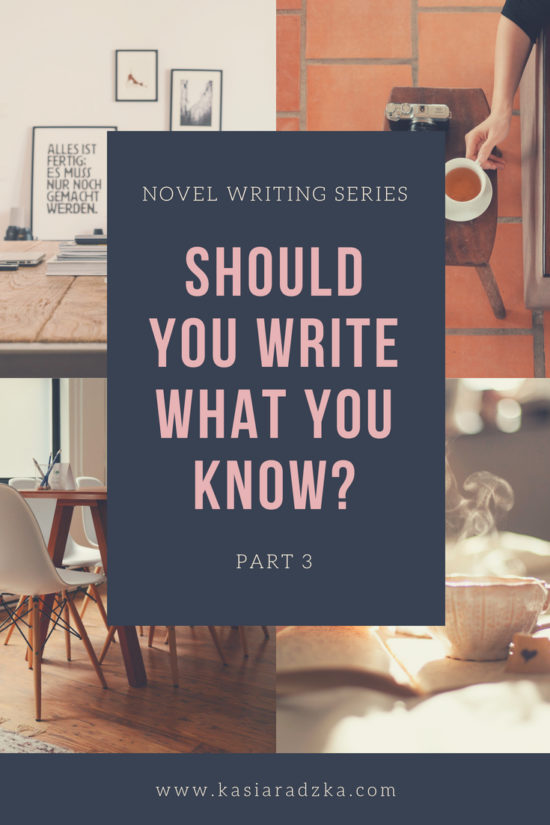Then again, I could be wrong.
Regardless, I’m sure you get my point. Writers don’t just write from experience, they also write based on their interests and curiosities. So don’t fret if you haven’t lived an adventure, you can still write a book.
It’s called research and writers do it well. The right amount of research will bring authenticity to your work.

Write what you want to know.
What are the topics that peak your interests? What do you love to read about? If you could go back to university, what would you study? Where would you travel to? What would you believe? What’s on your bucket list?
It’s never been easier to find the information you need, to write the stories you want to. With the click of a keyboard and you can discover new places, people and situations.
Research is a vital part of being a writer. And it’s never been easier than right now.
-
Read reference books and biographies
-
Talk to real people
-
Watch documentaries
-
Study maps
-
Read diaries and journals
You can research almost anything on the internet. No, actually, probably everything if you know what you’re looking for. That’s scary and empowering at the same time. Check out some of these when you’re researching your story.
-
Google Maps
-
Satellite images for more accuracy on setting
-
Tourist centres in most cities
-
Flickr Pinterest
We live in the information age. Information is accessible with the click of a finger. This is good and bad. Information can be abused. As a writer don’t want to do that. You want to take the information and turn it into something great.
If you’re writing a historical novel you can look for information and pictures that will help you create the world you want more authentically.
-
Find diaries of people who lived in the era that you are writing in
-
Run a Wikipedia check on the brief history
-
Check out your libraries online catalogue for books and ebooks
-
Contact HARO (Help a Reporter Out) for experts in the field
If you’re writing a police procedural and your character is a forensic pathologist you can search for articles, pictures of crime scenes, interviews with police, private investigators and the like and create a realistic story that experts won’t be able to poke fingers at.
-
The FBI/CIA/AFP etc all have websites you can use
-
Contact the PR of these organisations and see if someone is willing to speak to you
-
Get in touch with a local detective and see if they are willing to chat
-
Grab books for writers that deal with these topics
-
Talk to a PI and get them to tell you about their processes
You’re writing fiction, people are aware it’s made up. But people are also funny, and mean and brutal. If you make a factual error in a book someone will let you know and it’s not always going to be in a polite way. Make the effort to get the facts and use them correctly. There are a lot of tools available so you have no excuses!
The best one is chatting with people who are doing or have done what you’re writing about. Want to be more authentic? Consider your main character, even your secondary characters. Who are they? What do they do for a living?
Doctor? Great talk to your local GP about a typical day, their worries, and triumphs.
Mansion cleaner? They’re sure to have stories to tell about their clients – anonymously of course. Find some and get them to talk about their experiences.
Clown? Visit a circus, observe, take notes, chat with people.
Write what you are interested in and the information you need will come your way through research. You might be writing fiction but you want it to be realistic unless you’re writing sci-fi and fantasy which have their own set of rules to follow.
In the end, you should only write the story you want to tell.
ACTION STEPS
Where do you want your story to be set?
Start collecting information. Do a Google search and see what you can find. Save the information and any images into your research folder. Use Scrivener? There’s a function where you can keep all your research in one spot. It’s useful for both fiction and non-fiction writers.
How does your character look like?
A useful exercise is to grab a picture and describe it. Don’t tell me what’s on it. Show me so that I can see what you are seeing without actually having viewed the image. Your words as a writer need to paint a picture and it’s easier to do when you have something to look at.
What does your character do?
Research your character’s occupation. What information can you find on it? Wikipedia can give you some general information. Maybe you can find personal anecdotes to use or a diary of a day in the life.
Do you write what you know? How do you research what you don’t know?

0 Comments